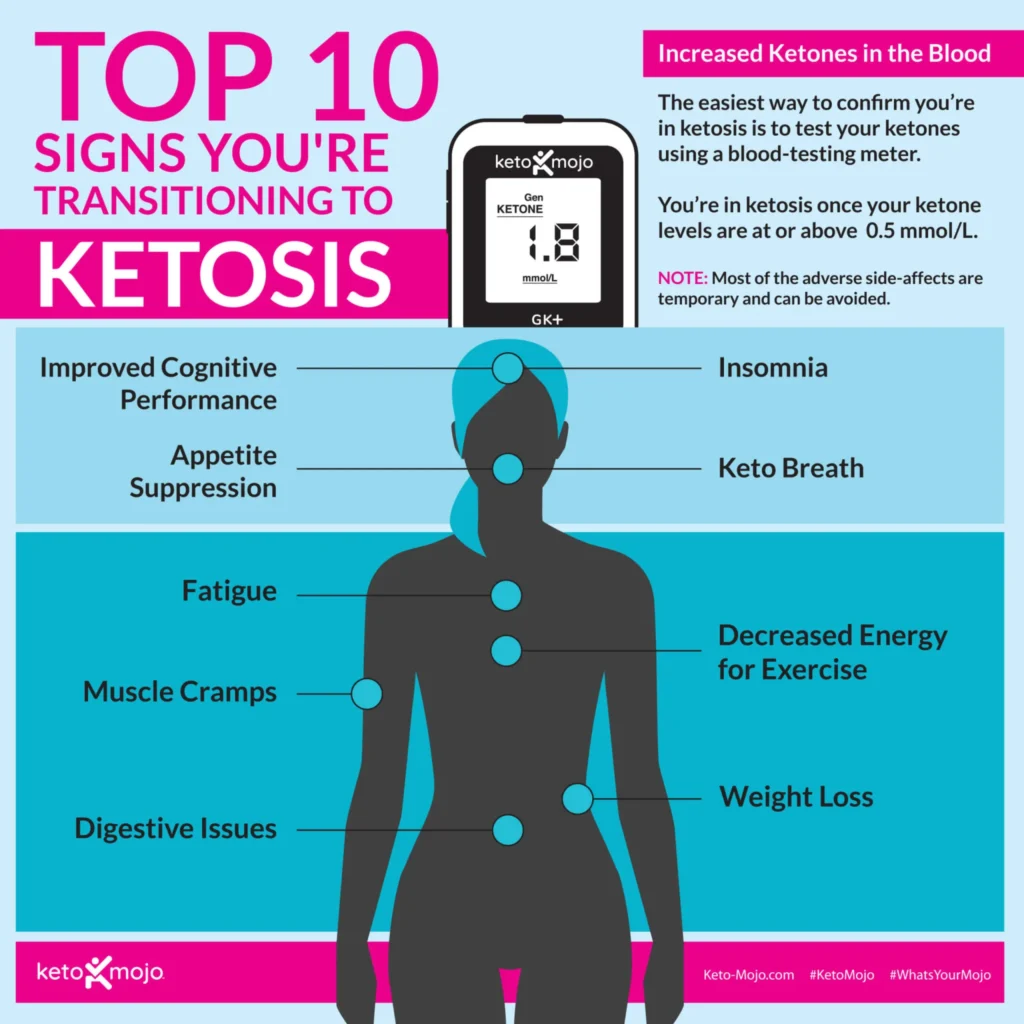
Ketosis is a metabolic state in which the body burns fat for fuel instead of carbohydrates. This process can occur when the body is in a state of fasting, such as during a low-carb diet or prolonged exercise. While ketosis can have several health benefits, such as weight loss and improved energy levels, it can also have some negative side effects if not managed properly.
One of the key ways to recognize ketosis is through the symptoms that accompany it. Here are some common signs that you may be in ketosis:
1. Bad Breath: One of the most common symptoms of ketosis is bad breath, often described as a fruity or acetone-like smell. This is caused by the breakdown of fats into ketones, which can be released through the breath.
2. Increased Thirst: When in ketosis, the body excretes more water, leading to increased thirst and more frequent urination. This is because ketones are water-soluble and need to be flushed out of the body.
3. Weight Loss: Ketosis is often associated with weight loss, as the body is burning fat for fuel instead of carbohydrates. This can lead to a decrease in body weight, especially in the early stages of ketosis.
4. Increased Energy: Many people report feeling more energetic and focused when in ketosis. This is because the body is using a more efficient fuel source, which can lead to improved mental clarity and physical performance.
5. Reduced Appetite: Ketosis can also decrease appetite, as the body is using stored fat for energy instead of relying on constant food intake. This can be a positive side effect for those looking to lose weight.
6. Digestive Issues: Some people may experience digestive issues such as constipation or diarrhea when first entering ketosis. This is often due to changes in the gut microbiome and can usually be managed with proper hydration and fiber intake.
7. Increased Ketones in the Blood: The most accurate way to determine if you are in ketosis is to measure the levels of ketones in your blood, urine, or breath. There are several devices available that can measure these levels, such as blood ketone meters or urine test strips.
It is important to note that not everyone will experience all of these symptoms when in ketosis, and some people may not experience any symptoms at all. If you are unsure whether you are in ketosis, it is best to consult with a healthcare professional for guidance.
In conclusion, recognizing the symptoms of ketosis can help you better understand how your body is responding to a low-carb diet or other factors that may induce ketosis. By paying attention to these signs, you can ensure that you are in a healthy and sustainable state of ketosis.